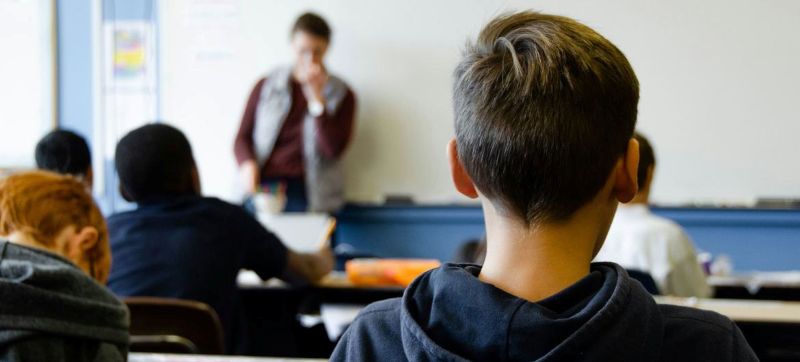 Adolescents
Adolescents
Adolescents across Europe, Central Asia and Canada face rising school pressure, diminishing family support, says WHO
Adolescents across Europe, Central Asia and Canada say they face rising school pressure and diminishing support from families and friends, according to a new report from the World Health Organization (WHO) and the Health Behaviour in School-aged Children (HBSC) survey.
The findings, based on data from nearly 280,000 young people aged 11, 13, and 15 across 44 countries, highlight a growing crisis in adolescent well-being, with girls and economically disadvantaged adolescents being the hardest hit.
“Adolescents today are facing unprecedented challenges in their social environments,” said Dr Hans Kluge, WHO Regional Director for Europe, “with potentially long-term consequences for their health and future life prospects.”
“These findings should be a wake-up call for all of us to act now to improve the conditions in which our young people are growing up,” he stressed.
Decline in family and peer support
Family and peer support are crucial pillars for adolescent mental health and overall development, yet the report shows a worrying decline in both.
Between 2021 and 2022, only 68 per cent of adolescents reported feeling supported by their families, down from 73 per cent in 2018.
The drop was even sharper for girls, with only 64 per cent feeling strong family support compared to 72 per cent in 2018.
Similarly, peer support dropped by three per cent. This decrease was particularly pronounced among older adolescents, who are already more vulnerable to mental health challenges.
Furthermore, the report shows that socioeconomic status continues to play a significant role in shaping adolescent experiences, with a nine per cent disparity between low-income adolescents and those from wealthier households.
The disparity extended to peer relationships, with those from disadvantaged backgrounds also less likely to feel supported by their friends or classmates.
Angst in the classroom
Academic pressure is intensifying, with significant consequences for adolescent mental health.
Two-thirds of 15-year-old girls reported feeling overwhelmed by schoolwork during the time of the study, a sharp rise from 54 per cent in 2018. Boys also reported increased pressure, though at lower rates.
Dr Irene García-Moya, one of the report authors, stated: “The rising pressure on adolescents is a multifaceted issue. Girls are often caught between competing expectations of academic excellence and traditional social roles, while boys may face pressure to appear strong and self-reliant, discouraging them from seeking necessary support.”
The report also found that girls are less likely to feel supported by their teachers.
“These findings point to a critical and widening gap in support structures for adolescent girls, who not only face greater school-related pressures but also experience less support from family and teachers compared to boys,” warned Dr Natasha Azzopardi-Muscat, WHO Director of Country Health Policies and Systems for Europe.
“This is not the first time that our HBSC studies point to different health impacts between boys and girls,” she added, emphasising the need to take the gender dimension of the issue into careful consideration.
Recommendations for action
“Our findings clearly indicate that no single sector or industry can address these challenges alone,” said WHO Regional Director Kluge, emphasising that the report calls for urgent coordinated efforts.
“Building safer and more inclusive school environments, providing economic support where it is needed, and implementing gender-sensitive interventions, all require the involvement of different spheres, from education to health to public policy,” he added.
Key recommendations include strengthening family support through creating targeted policy interventions for families, such as parenting programmes and financial assistance for low-income households.
It is also crucial to reduce school pressures. The authors advocate for more balanced homework policies for schools, the reduction of class sizes, and the integration of mental health support into the curriculum.
Moreover, addressing disparities through inclusive social policies and programmes that prioritise marginalised communities is critical.
Dr. Kluge stressed the importance of including adolescents at every step of the policy-making process. He noted that “this is a key function of WHO/Europe’s flagship Youth4Health initiative, ensuring young people have a far greater say on decisions that impact their lives.”
Support Our Journalism
We cannot do without you.. your contribution supports unbiased journalism
IBNS is not driven by any ism- not wokeism, not racism, not skewed secularism, not hyper right-wing or left liberal ideals, nor by any hardline religious beliefs or hyper nationalism. We want to serve you good old objective news, as they are. We do not judge or preach. We let people decide for themselves. We only try to present factual and well-sourced news.







